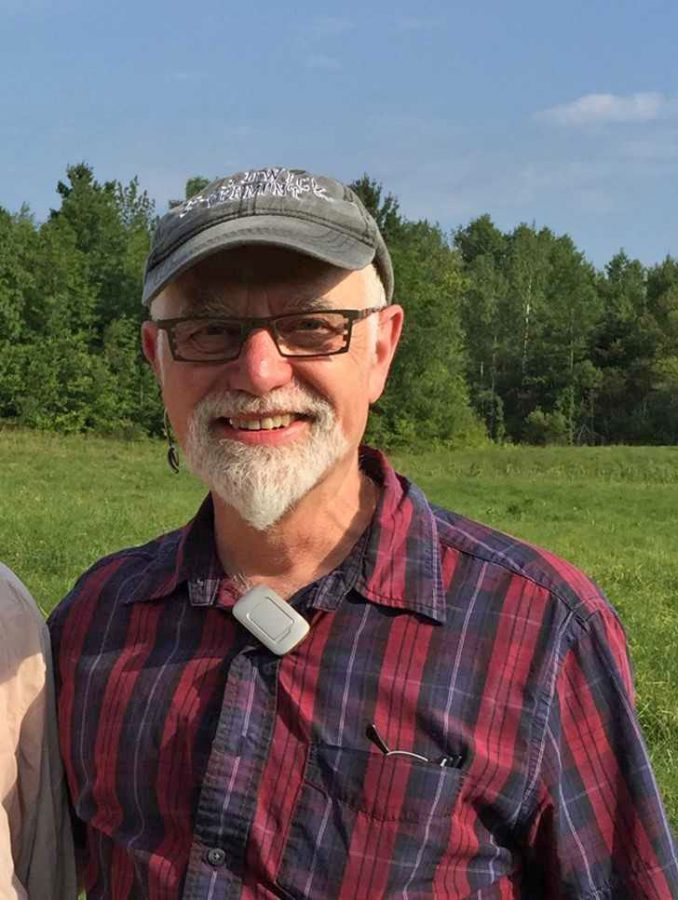Full-time faculty hiring suspended temporarily
Ken Leslie
A dip in enrollment during the NVU transition has translated to the suspension of searches for two full-time, tenure-track faculty positions.
One is for a 3D sculpture position in Johnson’s Fine Arts department, while the other is for a mental health counseling position at Lyndon.
According to NVU Provost Nolan Atkins, suspending the searches will save approximately $80,000, which will help reduce a projected budget deficit for next year. Searches for certain mission-critical positions, such as a new Dean of Enrollment and Marketing, will remain ongoing.
“We’re doing whatever we can to reduce it,” Atkins said. “As positions open up, they’re evaluated on a case-by-case basis. Some are filled, some are not filled and, in some cases, we restructure to address the need.”
Chair of the Fine Arts department Ken Leslie said that they will mostly fulfill department needs with part-time faculty as well as independent studies. In addition, certain courses will not be offered.
Sculpture I is a required course for the Studio Arts degree and will be taught by a part-time faculty member next year, but courses like Advanced Sculpture that are typically offered in the fall will not be offered.
Because of the nature of studio arts, Leslie says his department is already fairly reliant on a healthy staff of part-time faculty, employing about a dozen each semester.
“We’re doing what we can do,” Leslie said. “. . . There are so many different areas in studio arts, and it’s the same kind of thing in music. You wouldn’t want to study tuba with a violinist.”
The distinction between part-time faculty and full-time faculty lies not only in the number of courses they teach, but also in their extracurricular activities.
Part-time faculty are allowed to teach up to three courses per semester and have no advising or committee obligations. Part-timers are also allowed to take on a limited number of extra credits in form of tutorials, independent studies or advising a senior thesis.
Full-time faculty teach a minimum of four courses in addition to serving on committees and advising students. In Leslie’s case, his being department chair counts as one course and he oversees the MFA program, which also counts as a course.
The Fine Arts department received approval to fill the faculty position in September, after which it was posted in national publications. Leslie said they received a substantial number of applications and they narrowed the candidate pool down to 14. Skype interviews were set up, with some even underway, when Leslie was told the search had to be suspended.
Atkins said the administration fully intends to resume the search for both the Johnson and Lyndon positions next year, pending a positive budget outlook.
According to Atkins, Lyndon had approved a graduate program in mental health counseling “to meet the great demand of practitioners” in the Northeast Kingdom that would have been similar to the one here at Johnson.
None of Lyndon’s current faculty have the expertise to teach such a program, so the faculty position would be someone who could start the program, teach those courses, advise students and work towards identifying internship sites.
“I completely understand why the suspension was done. It’s not arbitrary . . . the president and the dean correctly decided that it was better to not fill these positions than to lay off somebody who’s already here,” Leslie said. “The state colleges system is overly dependent on tuition — about 85 percent of all our funds is tuition, so when you’re short a few students, it makes a big difference.”



